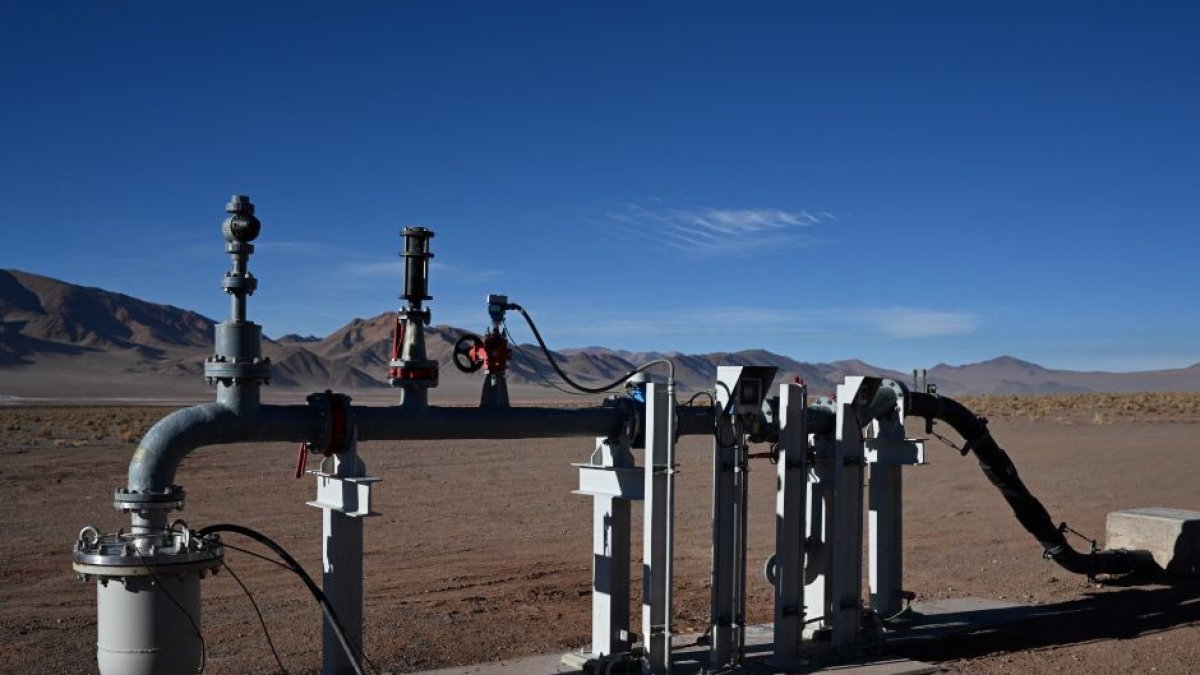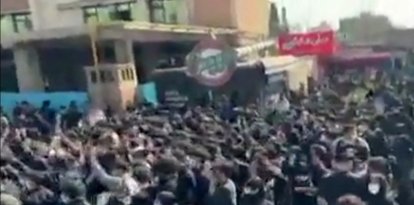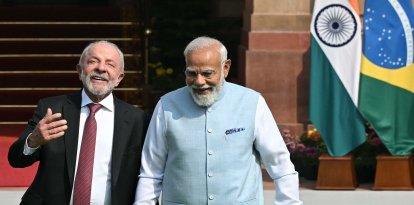What's underground in Ukraine? The mineral wealth that attracts the USA
Rare minerals are fundamental to the development of multiple technologies. They also play a strategic role in the military industry, where they are key to the manufacture of advanced defense equipment and systems.

A lithium extraction plant
In a scenario marked by Russian encroachment and global competition for strategic resources, Ukraine has emerged as a key player. On Wednesday, Washington and Kyiv signed an agreement that will allow the United States to participate in the exploration and exploitation of rare minerals in Ukrainian territory. The pact reflects an inescapable reality: the future of world technology depends on these elements.
What are rare compounds and why are they so valuable?
Under the name "rare compounds" there are 17 chemical elements grouped, including neodymium, dysprosium, samarium and terbium. These minerals possess unique magnetic, conductive and fluorescent properties, making them indispensable for the miniaturization and efficiency of advanced electronic devices.
Although they are not scarce in absolute terms, their extraction is complex, costly and highly polluting. They are usually found in low concentrations and accompanied by radioactive materials such as thorium, which requires sophisticated and environmentally risky industrial processes.
China currently accounts for most of the production and processing of these elements, which has set off alarm bells in countries such as the United States and the members of the European Union, determined to diversify their supply.
Ukraine: a mine of strategic resources
The Ukrainian subsoil has strategic wealth. According to the European Commission, the country possesses 21 of the 30 raw materials considered essential for the bloc's economic development, including lithium, nickel, titanium and several rare compound minerals.
Lithium is particularly notable for its role in the manufacture of rechargeable batteries, essential for mobile devices and electric vehicles. With an estimated 450,000 tons, Ukraine is emerging as a key player in the global energy transition.
In addition to lithium, there are significant deposits of titanium, nickel and other rare minerals, mainly concentrated in regions such as Donetsk, Dnipropetrovsk and Luhansk - many of them today under Russian occupation or threat - but other areas such as Kirovohrad, Zhitomir and Vinnytsia remain under Ukrainian control, with projects underway or under evaluation for their exploitation. This potential reinforces the country's role not only in economic recovery, but also in securing global supply chains.
Technological and military boost
Rare minerals are essential in multiple technological sectors. Neodymium, for example, is used in permanent magnets that power electric vehicle motors. Dysprosium enables the operation of high-temperature magnets in wind turbines. Without them, many everyday devices - from telephones to computers to renewable energy systems - would be unfeasible.
They also play a fundamental role in the military industry: satellites, guided missiles and advanced communications equipment depend on these materials, making access to them a matter of national security for the major powers.
An agreement with global implications
The new US-Ukraine pact seeks not only to boost reconstruction in the embattled country, but also to advance the US strategy to reduce its dependence on China. Beijing currently dominates 60-70% of the world's rare earths production and about 90% of its processing. In addition, restrictions were recently imposed on their export to the US, accelerating Washington's efforts to find alternative sources.
Having preferential access to Ukrainian resources represents for the White House an economic advantage and a geopolitical message in the face of Russian advance and Chinese influence.
During his meeting with President Volodymyr Zelensky at the Vatican, Donald Trump - who has maintained a critical stance on economic support for Ukraine - called the agreement "a very good thing." He claimed that this commitment is "worth more in theory than all the financial aid sent so far" and suggested that the presence of US contractors on Ukrainian soil could send a deterrent signal to Moscow, although he admitted that it does not guarantee effective containment.



























